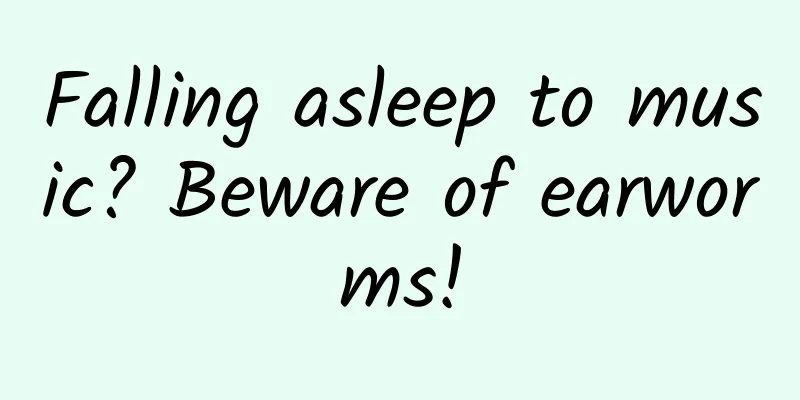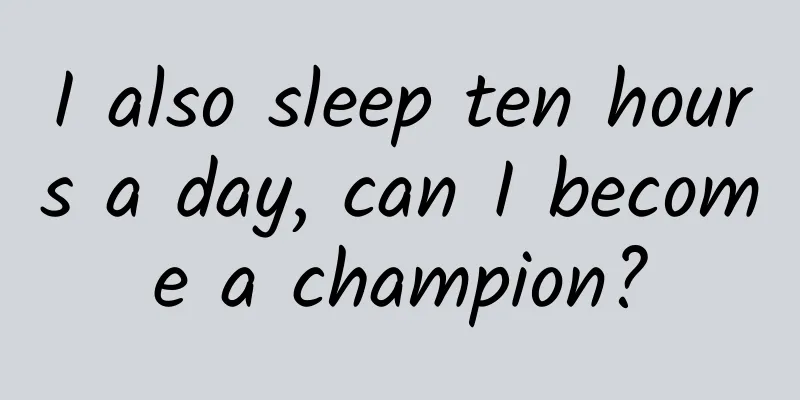Falling asleep to music? Beware of earworms!

|
Many people have the habit of listening to music before falling asleep, believing that this helps them sleep. But this method doesn't work at all for some people, and they may even become more energetic the more they listen. Michael Scullin, an associate professor of psychology and neuroscience at Baylor University in the United States, found that when he woke up in the middle of the night, a song would linger in his mind, which affected his sleep quality. So he began to study the relationship between listening to music and sleep. He focused on a mechanism that has rarely been explored: when a song or melody is played repeatedly, people tend to repeat the song (or melody) in their minds as if they were brainwashed, and they may even hum it unconsciously. This is called the "earworm effect." Earworms are involuntary musical images that usually occur while awake, but Scullin found they can also occur while trying to sleep. The findings are published in Psychological Science. "It's common for teens and young adults to listen to music before bed, but the more often you listen, the more likely you are to pick up an earworm that won't go away," Scullin said. "When that happens, your sleep may be affected." The study surveyed 209 participants about their sleep quality, music listening habits and how often they heard earworms, including how often they heard them when trying to fall asleep, when waking up in the middle of the night and when first waking up in the morning. In addition, the researchers brought 50 participants to Scullin's Sleep Neuroscience and Cognition Laboratory to try to study how "earworms" affect sleep quality. The researchers played three popular songs, and the participants were randomly assigned to listen to the original songs or the instrumental version without the lyrics. The results showed that participants with the "earworm effect" had more difficulty falling asleep, woke up more often during the night, and spent more time in the light sleep stage. Compared with people who rarely experience earworms, people who experience earworms once or more per week have six times worse sleep quality. Surprisingly, the study found that some instrumental music (without vocals) was more likely to cause earworms and disrupt sleep quality than lyrical songs, and was twice as likely to cause earworms as other music. In addition, the researchers conducted a quantitative analysis of EEG readings (recordings of the brain's electrical activity) from the 50 subjects to examine physiological markers of sleep-dependent memory consolidation. "Participants who experienced the 'earworm effect' showed slower vibrations during sleep, a sign of memory reactivation," Scullin said. Scullin said that almost everyone believes that listening to music can improve sleep, but studies have found that those who listen to more music have worse sleep quality. How to get rid of the "earworm effect"? Scullin suggested that you first try to listen to music moderately. If you are disturbed by the "earworm", you can take a break occasionally. "The timing of listening to music is also important, try to avoid listening to music right before going to bed." "If you listen to music in bed regularly, then this association could be created, and even if you're not listening to music, it could trigger the 'earworm effect' when you're trying to sleep," he said. Another way to get rid of earworms is to engage in cognitive activities. Focusing completely on a task, problem, or activity can help distract your brain from the earworm. Avoid engaging in demanding activities or doing things that could disrupt sleep, such as watching TV or playing video games, before bed, Scullin advises. Spending 5 minutes before bed writing down upcoming tasks can help "get out" of worrying about the future and help you fall asleep faster. Source: China Science Daily Author: Xin Yu Related paper information: https://doi.org/10.1177/0956797621989724 The pictures in this article with the "Science Popularization China" watermark are all from the copyright gallery. The pictures are not authorized for reprinting. |
<<: Do you really know our closest primate relatives?
>>: It’s so cold in winter, will eating fruit hurt your stomach?
Recommend
What are the effects of Bai Fuling
Everyone knows that white Poria cocos is a very c...
Can you eat a freshly dead crab? Which parts can’t be eaten? Eating it by mistake may kill you…
Expert of this article: Liu Jingjing, PhD in Food...
What are the effects of Astragalus tablets
What effect will this Astragalus slice have when ...
What are the medicinal values of Hedyotis diffusa?
I believe everyone knows about White Snake Grass,...
The efficacy and function of tiger ears
Tiger ear is a very nutritious and precious medic...
Does Pueraria root powder have any side effects?
Pueraria lobata is a plant from Thailand. Althoug...
The efficacy and function of eagle claw flower and fruit
There are many common Chinese medicinal materials...
Why doesn’t honey go bad?
This article was reviewed by Pa Li Ze, chief phys...
Unfettered space exploration may be threatening the future of “space security”
【Mobile software: Bo Ke Yuan】As countries and pri...
How to take donkey-hide gelatin blood-replenishing paste for the best effect
We often hear that donkey-hide gelatin blood-repl...
The most searched! Angered the entire Internet
Yesterday (18th), Topic: "Is it illegal to f...
The efficacy and function of Erlang Sword
Nowadays, our living standards are constantly imp...
The oldest forest fossils push the forest's "birthday" forward millions of years!
□ Feng Weimin Recently, the international geologi...
How much soapberry should be used?
Soapberry is a common Chinese medicinal material ...









![The efficacy and function of the eight-clawed golden dragon [picture]](/upload/images/67ca659988446.webp)